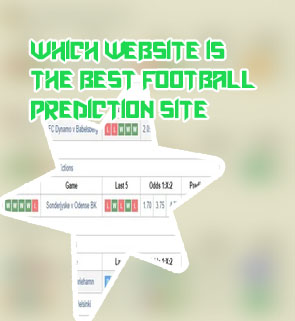
Soccer fixture prediction
Predicting soccer fixtures can be both challenging and exciting for fans and bettors alike. With the right strategies and tools, it is possible to increase accuracy and success in predicting match outcomes. Below are four articles that provide valuable insights and tips on how to improve your soccer fixture predictions.
The Importance of Team Form in Soccer Fixture Prediction

In the world of soccer, predicting match outcomes can be a challenging yet rewarding endeavor. One key factor that plays a crucial role in making accurate predictions is the form of the teams involved. Team form refers to the current performance level of a team, which can be assessed by looking at their recent results, goals scored, goals conceded, and overall playing style.
Analyzing team form allows bettors, analysts, and fans to make more informed decisions when it comes to predicting the outcome of soccer fixtures. Teams that are on a winning streak are more likely to continue their winning ways, while teams that are struggling may find it difficult to turn their fortunes around.
There are several key reasons why team form is essential in soccer fixture prediction:
- Momentum: Teams that are in good form tend to have momentum on their side, making them more likely to continue their winning streak.
- Confidence: Winning breeds confidence, and confident teams are more likely to perform well on the field.
- Injuries: Teams with key players in form are more likely to succeed, while teams with key players out of form or injured may struggle.
- Head-to-head matchups: Analyzing the form of both teams involved in a fixture can provide valuable insights into how they may perform against each other. 5
Using Data Analysis to Predict Soccer Match Outcomes
In the ever-evolving world of soccer, data analysis has become an invaluable tool for predicting match outcomes. By analyzing a wealth of data points such as past performances, player statistics, team formations, and even weather conditions, analysts can now make more accurate predictions about the likely outcome of a soccer match.
One key factor that data analysis can help predict is the likelihood of a team scoring goals. By looking at past scoring patterns and comparing them to the current form of teams and players, analysts can determine which team is more likely to come out on top. This information can be crucial for bettors looking to make informed decisions about where to place their money.
Furthermore, data analysis can also help in predicting the overall outcome of a match, whether it will be a win, loss, or draw. By taking into account various factors such as home advantage, injury reports, and even referee tendencies, analysts can provide valuable insights into how a match is likely to unfold.
In conclusion, data analysis has revolutionized the way we predict soccer match outcomes. By leveraging the power of data, analysts can provide valuable insights that can help bettors and fans alike make more informed decisions about the beautiful game. This article is important for soccer enthusiasts looking to gain a deeper understanding of how data analysis can be used
Key Factors to Consider When Predicting Soccer Fixtures
When it comes to predicting soccer fixtures, there are several key factors that need to be taken into consideration. One of the most important factors is the form of the teams involved. Teams that are on a winning streak are more likely to continue their winning ways, while teams that are struggling may find it difficult to turn things around. Another important factor is the head-to-head record between the two teams. Some teams simply match up better against certain opponents, and this can have a big impact on the outcome of the match.
In addition to form and head-to-head record, other factors to consider include injuries, suspensions, and home field advantage. Injuries to key players can greatly affect a team's performance, while suspensions can leave a team shorthanded. Home field advantage is also a significant factor, as teams tend to perform better when playing in front of their own fans.
Overall, predicting soccer fixtures requires a comprehensive analysis of all these factors in order to make an informed prediction. By considering form, head-to-head record, injuries, suspensions, and home field advantage, bettors can increase their chances of making successful predictions.
This article is important for soccer fans and bettors who are looking to improve their predictions and make more informed decisions when placing bets on soccer fixtures.
How to Use Historical Data for Accurate Soccer Fixture Predictions
Soccer fixture predictions have become increasingly popular among fans and bettors alike, with many turning to historical data to improve the accuracy of their forecasts. By analyzing past matches, trends, and statistics, one can gain valuable insights into the potential outcome of future games. Here are some key strategies for using historical data effectively in soccer fixture predictions:
-
Study team performance: One of the most important factors to consider when making predictions is the performance of the teams involved. By looking at past results, goals scored, and defensive records, you can assess the strengths and weaknesses of each team.
-
Consider head-to-head matchups: Another valuable source of historical data is head-to-head matchups between teams. By analyzing previous encounters, you can identify patterns and tendencies that may influence the outcome of upcoming games.
-
Evaluate home and away records: Home advantage is a well-known factor in soccer, with teams typically performing better on their own turf. By examining historical data on home and away records, you can factor in the impact of venue on match outcomes.
-
Take injuries and suspensions into account: Injuries and suspensions can have a significant impact on team performance and results. By tracking historical data on player absences, you can adjust your predictions accordingly.
-
Use statistical models: